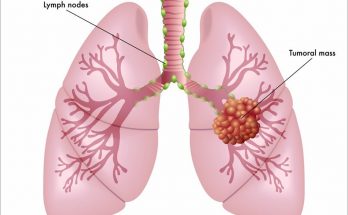Exacerbation of chronic bronchitis, usually associated with emphysema may be described as episodes of acute difficulty in breathing in a person who is suffering from chronic bronchitis. Usually this is a sign that the bronchitis has taken a turn for the worse suddenly. Medically classified under Chronic Obstructive Pulmonary Disease or COPD, the exacerbations are termed ‘Acute Exacerbation of COPD’ or simply AECB that refers to the acute cases. How does chronic bronchitis happen and how it affects the victims – it is always good to learn as much about this as you can.
The fact is, COPD is extremely widespread in the United States – it affects more than 12 million people, and there are many of them who will suffer at least two to three episodes of AECB every year. Because of the widespread nature of the disease, it is essential to find treatments, and luckily there are quite a few of them too.
In the acute stage or during exacerbation of chronic bronchitis, breathing becomes more difficult since the airways (that is also known as tracheal) are constricted, while the thickened mucus that gets accumulated adds to the misery.
Some Factors That Make The Condition Worse
1. Toxins, including chimney smoke, cigarette smoke, vapor arising from chemicals, acids and others like this that are abruptly inhaled by a COPD patient.
2. Allergens, including pollens, change in weather conditions that do not suit the affected person, musty smell from long unused garments stored in unhygienic conditions, pollution from factories and germicide sprays.
3. Acute bacterial or viral infection from accumulated mucus in the airways. Bacterial infections are more pronounced when the expectorant mucus takes a greenish or yellow color or appears much thicker than normal. Some of the more common bacterial pathogens found include streptococcus pneumonia, haemophilus influenza and Maraxella catarrhalis while rarer pathogens come under the group known as Chlamydia pnemoniae and MRSA. Pathogens more frequently found in AECB patients with impaired lung function include haemophilus parainfluenza (after repeated use of antibiotics), Mycoplasma pneumonia and gram-negative, opportunistic pathogens like Pseudomonas aeruginosa and Klebsiella pneumonia.
Exacerbation Of Chronic Bronchitis – The Most Common Symptoms
The most common symptoms include increased frequency and severity of coughing (similar to pulmonary tuberculosis) that is usually accompanied by deteriorating chest congestion. While shortness of breath is prevalent in most cases, wheezing has also been reported by many.
Diagnostic evaluation of AECB is mostly carried out to eliminate chances of secondary infections as the patient himself/herself provides enough evidence of what he/she is suffering from by relentless coughing accompanied by short of breath.
Remedies For Chronic Bronchitis
Bronchodilators (when inhaled deeply) provide relief by opening up the airways of the lungs. These usually comprise Salbutamol and Terbutaline, both being ß2-adrenergic agonists as well as Ipratropium which is an anticholinergic.
Cough suppressants are often prescribed to reduce relentless coughing, but Mucolytic agents appear to be more effective in the long run as they lessen the viscosity of the mucus that is found in the airways.
Although the medical fraternity is usually not in favor of prescribing antibiotics unless specifically needed, lipid-soluble antibiotics like Macrolides, Tetracyclines and Quinolones that have a better penetrating power on the lung tissues are often prescribed. Corticosteroids available in the form of Prednisone can also reduce inflammation in the airways. However you will need to use them for short periods only. Theophylline when taken orally can help to alleviate breathing difficulties as well.
There are alternative treatments too such as homeopathic and natural remedies and even holistic cures that can work in some cases. But the exact sure applied must depend on the particular case. For example, if the patient is pregnant, the doctor will obviously be more careful about the drugs. However no matter which treatment protocol is applied, the good news is, exacerbation of chronic bronchitis can be treated successfully.
